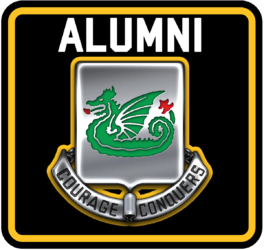FUNCTIONAL SKILLS FACTOR LARGE
Following my stint with 1 Bn 37th Armor with its then jeeps, gamma goats and M60 tanks, I served 20 more years in the U.S. Army Reserve with two mobilizations. Reserve drill weekends, chocked full of Common Task and other mandatory training, scarcely held time for MOS sustainment. Knowledge of fellow soldiers’ MOS proficiency was spotty because, in the Reserve Component, one’s Functional Skills often contributed more to mission success than MOS or even the rank on one’s collar. At no other time was this fact more evident than no-notice mobilizations to active duty. Being thrust together for 8-16 months instead of the usual 8-16 hours begged the question: What else can you do?
SGT A., not a mechanic by MOS, was so skilled at generator repair and maintenance that, in the motor pool, he became known as “Healing Hands.” SPC B. spoke excellent French. Who knew? 1LT C. had been an accomplished gymnast in college; she wowed our Active Component parent unit with spirited PT warm-ups. I could draw maps and graphics as well as many a school-trained draftsman.
Functional Skills factor large because they are transferable skills. Which
functional skills do you possess that may or may not be related to your Army MOS? To be competitive in the job market in the 2020s, do you need to acquire new skills? To best position yourself for the civilian job market, pay keen attention to identifying and refining your present functional skills as well as acquiring new and more marketable skills. On your resume and in job interviews, you must first identify and then communicate the transferability of your skills to prospective employers.
The aforementioned examples can be respectively described as Mechanical, Language, Physical/Dexterity, and Artistic. Yet there are many more functional skills:
Interpersonal: Relate well, work well with others, both individuals and groups. “Often selected to welcome and orient new employees.” “Served as manager’s liaison to community volunteers, all senior citizens.”
Persuasive: Able to sell or demonstrate ideas, products and services to various groups. “Made presentations to Congressional staffers on pros and cons of proposed policy.” “Was recognized as outstanding keyworker in the Combined Federal Campaign (United Way) with donations to charity totaling over $5,000.
Spatial Analysis: Visualize or conceptualize the shape, dimensions, and surfaces of objects, 2D or 3D, from images, plans, or drawings. “Designed floor plans to maximize space from provided blueprints.”
Abstract Reasoning: Develop logical procedures without specific words or numbers as guides. “Created macros for the office PC that saved much admin time.”
Supervisory: Lead people, liaise with other work units, delegate responsibilities, mediate disputes. “Determined work assignments for 5 direct reports and coordinated work flows with our East/West Coast office three time zones apart.”
Coaching/Counseling: Help others to solve personal and work-related problems. “Assisted claimants in understanding their rights, responsibilities, and timelines.” “Was sought after to generate ideas for Alternative Dispute Resolution.”
Instruction: Teach skills and knowledge to others. Facilitate learning situations. “Trained 20 employees on how to use new inventory software.”
Numerical: Work accurately with figures, custodian of accounts and cash box. “Reconciled accounts payable and receivable, balanced accounts weekly.”
I trust you have retained copies of your OERs/EERs. Scanning the bullet points and accomplishments should identify a number of functional skills transferable to civilian work. O*NET Online offers a handy list to jog your memory at https://www.onetonline.org/skills/. As a former USAR Turkish linguist, I would be remiss not mention translation as a functional skill. Translation of your Army functional skills into civilian language may be required. Ask a mentor for help. The previous Blog covered adaptability skills; the next one will examine technical or job-specific skills.
Douglas Batson was a Cavalry Scout in 1st Bn 37th Armor in Ansbach, Germany, 1980-82. He is a National Certified Career Counselor and Senior Professional in Human Resources. In 2004, he retired from the U.S. Army Reserve as a Sergeant First Class.

